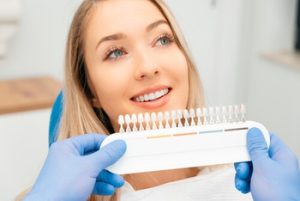Baking soda has gained attention for its promise of a whiter smile using ingredients straight from your kitchen. While it may seem harmless, relying on it for teeth whitening carries hidden risks. Over time, what begins as a DIY remedy can slowly compromise your dental health. Before reaching for the bicarb, it’s worth understanding the baking soda teeth whitening dangers that could harm your teeth over time. There are safer, professionally guided options that offer effective results without the same risks.
Can Baking Soda Really Whiten Teeth Safely?
Home remedies often promise quick results, but not every solution is suitable for your mouth. Here’s what baking soda can and can’t do when it comes to brightening your smile.
Why Baking Soda Gains Popularity in Whitening Routines

What Makes Baking Soda Risky Over Time
Although baking soda whitens teeth in certain cases, it lacks fluoride, which plays a vital role in preventing cavities. Overuse may erode tooth enamel, especially when applied with vigorous brushing. Its abrasive properties can lead to sensitivity and leave teeth vulnerable to decay. Once the protective enamel thins, even everyday items like coffee or cold air can cause discomfort. Instead of delivering a consistently brighter smile, frequent exposure can slowly wear down your teeth.
How Abrasiveness Impacts Long-Term Health
Baking soda’s abrasive quality helps remove stains, but that same quality can roughen enamel and expose the tooth surface. The resulting micro-scratches make it easier for stains to return and bacteria to cling. Without the strengthening effect of fluoride toothpaste, this erosion contributes to cavities and weakened gums. Using baking soda regularly may disrupt oral bacteria balance and lead to increased decay risk. Safe whitening treatments offered by a dentist protect enamel while delivering visible results.
Are Home Whitening Trends Creating Bigger Problems?
As natural trends rise, so does misinformation. Looking closer at what’s missing from home-based methods may help you avoid future dental challenges.
The Difference Between Surface Results and Structural Damage
DIY pastes may remove surface stains, but they cannot reverse deep discolouration. While teeth with baking soda may look lighter at first, these changes are often temporary. Beneath the surface, your oral health may be compromised. When enamel thins, the yellow layer of dentin underneath becomes more visible. That’s why regular use of baking soda can make tooth stains worse over time instead of better. Some people attempt to gently buff stains away using baking soda, but this approach often damages more than it improves.
Why Fluoride Matters in Whitening Decisions
Baking soda doesn’t include fluoride, which strengthens enamel and supports overall dental health. Without fluoride, even minor abrasions can grow into visible damage. Fluoride toothpaste also helps neutralise acids that cause decay, something baking soda cannot replace. If you’re skipping regular toothpaste in favour of natural powders, you’re missing a key tool in preventing cavities and maintaining healthy gums.
How DIY Methods Compare to Tested Products
Unlike approved whitening toothpaste, most home mixtures don’t undergo any form of safety testing. Ingredients like hydrogen peroxide, if added incorrectly, can irritate the mouth or damage soft tissue. Some homemade recipes involve acidic substances like lemon juice, which worsen enamel erosion when combined with baking soda. Professionally developed teeth whitening products balance active ingredients with stabilisers, ensuring they’re safe for repeated use.
What Should You Use Instead of Baking Soda?
Rather than risking irreversible harm, there are safer and more effective ways to achieve a whiter smile. Here’s what to look for if you want results without sacrificing your oral health.
Trust Whitening Products That Are Professionally Approved
Choosing whitening products backed by professional testing ensures you’re not compromising on safety. These products are designed to whiten teeth gradually while preserving the health of your gums and enamel. They can also help reduce plaque while addressing discolouration more effectively than DIY options. Rather than turning to soda or citrus-based pastes, trust in treatments that have been researched and regulated. Rinse thoroughly after using any whitening product to avoid residue build-up and protect enamel.
How Toothpaste Differ in Whitening Power
Not all toothpastes are created equal. Many whitening toothpastes now contain safe polishing agents and fluoride to support oral health. Some target removing surface stains from things like tea or coffee, while others work on deeper discolouration. Instead of relying on sodium bicarbonate alone, these formulas combine various compounds to maintain a balance between performance and protection. Switching to an appropriate paste can help whiten your teeth without harming your tooth enamel.
 Speak to Your Dentist Before Making Changes
Speak to Your Dentist Before Making Changes
Before attempting to whiten, always discuss your goals with a dental professional. They can assess whether stains are external or internal and recommend appropriate dental treatments. For some, whitening may not even be necessary if the problem relates to decay, not discolouration. A tailored solution might involve whitening treatments in clinics or approved take-home kits. Your dentist will also check for early signs of tooth decay, ensuring your whitening goals align with your dental care needs.
Want A Brighter Smile Without The Risk? Visit Us Today
If you’ve been using home remedies and aren’t seeing lasting results, we can help. Our professional teeth whitening services are customised to your needs and offer safe, lasting improvements without the guesswork. Instead of risking damage with household products, let us guide you through clinically proven solutions. Book your consultation today and take the first step toward a confident, healthy smile. Please call us to schedule your appointment.
Illawong: (02) 9158 6756
Sylvania Waters: (02) 9159 6083
Pyrmont: (02) 9158 6213
References
https://www.hopkinsmedicine.org/health/treatment-tests-and-therapies/teeth-whitening
https://www.sciencedirect.com/science/article/pii/S0020653924000595


 Speak to Your Dentist Before Making Changes
Speak to Your Dentist Before Making Changes
